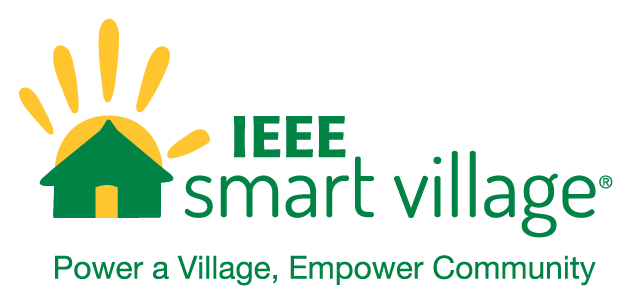EMPOWER: Volume 2 Issue 1 February 2021
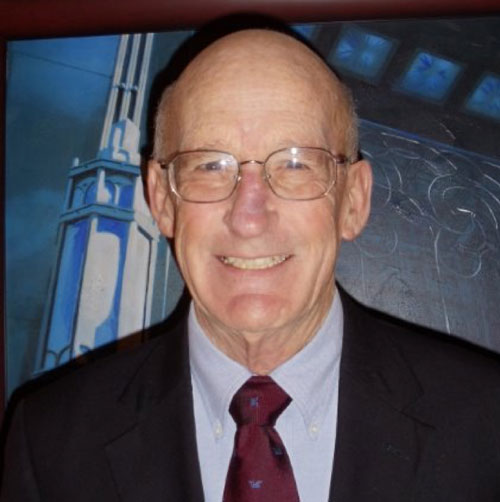
President’s Message
SOME 2021 NEW YEAR GOALS
As we enter 2021, many have made new year’s resolutions. I have never been much for resolutions since there are only two results. You achieve or don’t achieve the resolutions. I try to set goals that are challenging and meaningful. While one may not totally achieve a goal, there can still be satisfaction where there is either success or defeat in a resolution. Take 2020: my goal was to swim 540 miles. Little did I know on 1st January 2020 I would only be allowed to swim for a total of three months, then be limited to five days of swimming per week and further limited to 60 minutes or less at a time. However, I did swim 295 miles which was disappointing but a satisfactory result because of COVID-19 pandemic.
Within IEEE Smart Village (ISVx), we were highly constrained on what could be accomplished. Even though constrained in 2020, ISVx advanced in many ways that will propel ISVx to new heights in 2021. Virtual meetings, more volunteers and reasonable fundraising in 2020 allowed me to set some reasonable 2021 goals:
- Develop ISVx Student Branches
- Develop a North American Working Group
- Develop a China Working Group
- Develop Collaboration with IEEE SIGHT, HAC, EPICS, EBL and other humanitarian initiatives
- Increase ISVx Governing Board Society and Technical Council members
- Increase in research in New Technologies such as vertical agriculture with hydroponic farming using renewable energy and high efficiency LED lighting in order to avoid food shortages
- Develop webinars in electrical safety, reliability and standards
2021 should be a much better year thanks to the many donors, IEEE Foundation and the ISVx Governing Board Societies and Technical Council. In an effort of appreciation, we are including the ISVx Societies and Technical Council logos in this newsletter.
Please have a Safe, Healthy and a Happy New Year.
Africa Working Group (AWG) -2021 Mission
The working group was officially inaugurated on the 16th of October 2020, and has now more than 70 active volunteers from 20 countries within Africa. For the first time, we now have representatives from Swaziland (Eswatini), Mauritius, Sudan and Central Africa Republic. We will continue to reach out to various representatives to develop a good cross section of African representation.
This New Year presents a wonderful opportunity for the team to progress in achieving its mandate.
The focus of this year includes…
1. 2021 IEEE PES/IAS PowerAfrica Conference: Over the years, thanks to the IEEE Power & Energy Society (PES) and the IEEE Industrial Applications Society (IAS), the IEEE PES/IAS PowerAfrica Conference has been the platform ISVx family get to share ideas, best practices, learn and most importantly network. The 2020 edition was a huge success held virtually. Plans for the 2021 edition is already ongoing with kick off meeting held by the organizers in December.
Our team, led by Avoki Omekanda (AWG Conference/Education SC chair), is already working closely with the local organizers to deliver another remarkable conference for the IEEE Smart Village family in August 2021. Call for Papers for the 2021 edition will feature interesting tracks for our entrepreneurs to submit relevant papers in line with various field experiences at the Conference. If you have wonderful ideas, please do share them with us at info@ieee-powerafrica.org. We look forward to your submissions.
ISVx is looking into being a major sponsor of the conference alongside PES and IAS.
2. Increase the number of ISVx entrepreneurs and projects in the continent: The number of ISVx entrepreneurs in the continent are less than 15. The team will work closely with the existing entrepreneurs, and most importantly with prospective entrepreneurs toward onboarding new partners. We hope to see more projects and entrepreneurs in the continent in the coming months.
3. Collaboration: Working closely with organizations with similar objectives is also a priority for this year. The Rotary e-club of Silicon Valley Smart Village initiated a pilot telehealth project in six locations in Kenya and Uganda in collaboration with ISVx entrepreneur REIc as technical partner on the project. The project will scale to other Africa countries in the near future.
Africa Energy, a technical consultancy based in South Africa, has indicated support to provide quarterly webinar to train volunteers and entrepreneur on renewable energy solutions. More details on this will be provided in subsequent editions of this newsletter.
The working group was presented to the IEEE Africa Council on December 30, 2020. The Council agreed to work with the working group towards achieving its mandate.
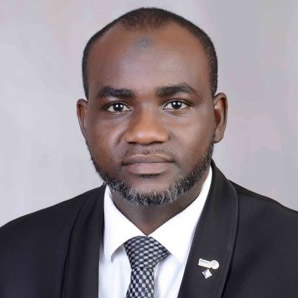
About the Chair of AWG- Abdullateef Aliyu
Abdullateef is the chair of the ISVx Africa Working Group (AWG) and has over 15 years of experience working in an information and communication technology (ICT) industry that focuses on providing broadband services to the urban and rural areas across West Africa. He is an experienced Project Management Professional (PMP) with a B.Eng. (Electrical Engineering) from Bayero University Kano (BUK), and a master’s degree in information and communication technology from Northern University of Malaysia. Abdul is a certified business analysis Professional and a certified Quality Improvement Associate (CQIA). He has been an IEEE volunteer for more than 15 years.
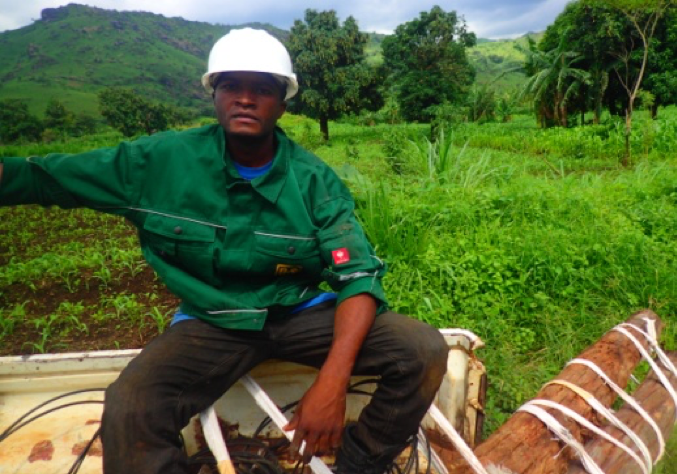
A tale from Cameroon’s young entrepreneur – Kanjo Etienne
Kanjo Etienne grew up in Nkambe, a semi-urban locality in northwest region of Cameroon where his father worked as a civil servant after leaving their village of origin, Luh village, which to date has no electricity from the grid. While in elementary and early secondary school, he sold wood and would travel for trading to nearby towns along the Nigeria-Cameroon border to support the family. Nkambe was connected to the grid, but suffered constant power failures that sometimes lasted three months.
During secondary school days, Kanjo was fascinated by renewable energy especially biogas through which he saw an opportunity to end dependence on wood. His interest was further stirred in renewable energy when the government liberalized the energy sector that had been a monopoly. However, Kanjo had nowhere to get more knowledge of renewable energy until an organization named Torchbearer Foundation set up their headquarters in Nkambe in 2004, and installed the first internet services in the entire Division (county). Kanjo began studying about renewable energy on the internet and resolved to travel to India after high school to study renewable energy since there was no institution in Cameroon or around offering renewable energy courses at the time. His plan, not yet knowing the huge investment costs of solar power, was to return to the country and have every village electrified.
By 2006, after completing high school, Kanjo engaged in computer software while looking for opportunities to raise funds to travel to India. He met Njini Daniel, an ardent self-made renewable energy enthusiast in of the Cameroon Whiz kid Organization in 2007 during a scientific research exhibition organized by the government in the little town of Nkambe. It is during this occasion that Kanjo saw the first solar panel in his life in the hands of Njini Daniel. A great bond ensued with Daniel and in 2008, they built the first biogas system and solar thermal heater at the Cameroon Whizkid Center after enormous research.
Kanjo was hungry for more knowledge because the biogas did not perform well, and decided to seek training and employment with a subcontracting company to the national grid company to raise funds for further education in 2009. However, the job could not help him raise the needed income due to low pay. He decided to travel illegally to neighboring Gabon in 2010 to work and raise money to further education in India. In 2011, while in Gabon, Kanjo ended up in detention as an illegal immigrant. Going back to Douala district, Cameroon, he worked with a lumber firm where he could save $200 monthly. However, as the savings grew and raised hopes of traveling to India to study renewable energy, Kanjo’s dad suffered a stroke caused by chronic diabetes. Kanjo travelled home to help and ended up using up all his savings in hospital. His father recovered but lost his memory till his death in 2013.
He left for the town of Bamenda after his father was discharged from hospital and was elated when his brother told him of an institution, Rural World Resources International, set up for training in renewable energy. Kanjo immediately visited and applied for admission. He ended up receiving training for two years in Renewable Energy and Energy Efficiency Technologies. He graduated as the best student, and in 2014 Kanjo volunteered in the same institution, training younger students. In November 2014, Kanjo was invited to a seminar organized by the Torchbearer Foundation in Bamenda.
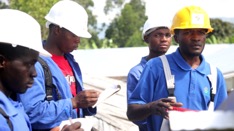
Torchbearers became interested in Kanjo’s skills and dreams, and finally employed him in February 2015 as the renewable energies developer. With the Torchbearer Foundation (Igniting Africa), and the generosity of IEEE Smart Village, Kanjo began having the most exciting part of his career as he built five microgrids in five different villages that have impacted over 10,000 lives. He has contributed in building a farm school at Torchbearers where he also mentors young adults. This farm school has also benefited from IEEE Smart Village support. Within this school, he has trained over 50 youth in renewable energy. He continued his research on the side, and developed a biomass gasifier that produces gas from solid organic farm waste for internal combustion engines. Kanjo has also carried out studies on some waterfalls around the country for hydropower generation.
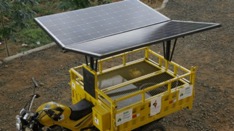
In 2017, with his team, he developed an electric tricycle equipped with accessories to act as a mobile power plant for Cameroon villages. This was later redesigned to run on gasoline but still having 600 watts of solar power for water pumping and other energy needs in villages. Since 2019, four years in Torchbearer Foundation, Kanjo was made the interim director and has overseen the activities of over 40 community development groups called Torches. They have a total of over 500 members spread in over 10 villages.
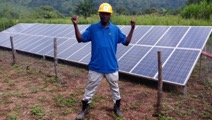
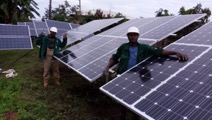
As a result of partnership between the Torchbearer Foundation and IEEE, Kanjo has had exposure, attending three IEEE PowerAfrica Conferences in Zambia, Ghana and Nigeria. These Conferences have led to productive networking with other professionals in energy, industry and finance. Equally, he has improved his leadership and technical skills a great deal from IEEE Smart Village volunteers that have visited Cameroon, like Mike Wilson, Rita Hogan, and Mike Sickles.
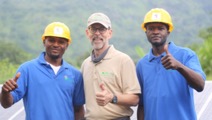
Kanjo plans to take the Torchbearer Foundation farms school to sustainability through in-country income generating activities. He plans to achieve this by setting up on-campus enterprises in poultry, dairy farming and aquaculture. In the long term, he intends to plant farm schools in all regions of Cameroon to train youth in renewable energy, agriculture and entrepreneurship. Through farm schools, Kanjo expects to impact a million lives in 5 years.
Kanjo might not have finally traveled to India for more education but is excited at the enormous opportunity given him within the Torchbearer Foundation (Igniting Africa) and IEEE Smart Village to transform communities through education, energy and enterprise.
Nkambe still has power shortages and outages, but he is proud because some of his former students are setting up businesses there for domestic power installation. As for his village of origin, Kanjo has already carried out feasibility studies and working with community people to develop hydropower for the village.
Life is not fair and may take from or give many things to us, but our ability to transform a life or a community is always there.
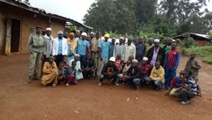
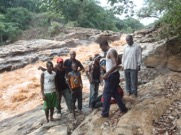
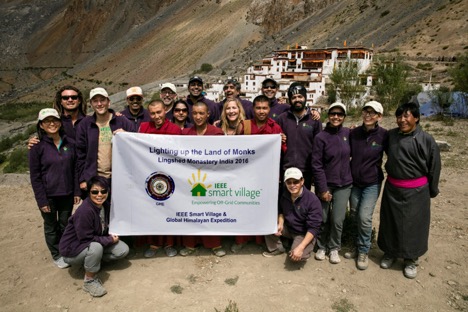
Leveraging Energy Tourism to Provide Clean Sustainable Energy Access to Himalayan Communities
In the past five years, 5 villages in the Himalayas have been connected to the electricity grid thanks to Global Himalayan Expeditions (GHE) in partnership with ISV. GHE founder Paras Loomba’s idea was to empower communities, through electrification, by collaborating with villagers. The electricity would in turn enable the communities not only to light up their homes but further access additional amenities such as small computer systems for access to information, communication, health and education.

In 2016, Paras and his team realized they could go a step further in order to improve the livelihood of local villagers, to ensure economic and environmental sustainability. As a solution, Paras set up Mountain Homestays, a subsidiary of GHE which accommodates climbers (usually tourists) in a guesthouse during their journey in the Himalayan mountains. Mountain Homestays allows climbers to book their accommodation in advance through an online platform (www.mountainhomestays.com). This initiative provides the local community with income, which can be used to improve their economic status and maintain the microgrids installed by GHE.
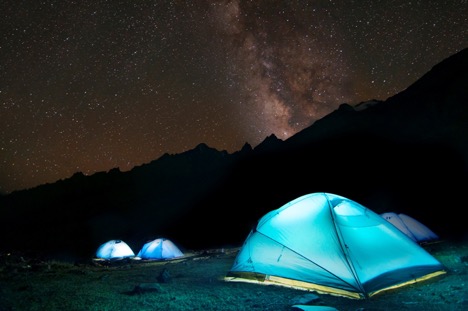
In 2018, Paras attended the UN climate change forum in Poland where he presented the climate change threat in the mountainous areas, where he spoke of GHE’s venture into the tourism after being involved in expeditions for over a year. The group is now using tourism as a vehicle to electrify the villages.
The GHE team believes that grants should be used to initiate electrification efforts in communities. “We would like to see sustainable community models be implemented to ensure their continuity. GHE’s mission is to empower indigenous communities to be at par with the rest of the world,” says GHE founder, Paras Loomba.
GHE notes the value of conducting assessments prior to installing mini-grids in the chosen area. For example, in the Himalayas, the communities were over dependent on fossil fuels which were harmful to their health as well as cow dung for space heating needs. The existing solar systems were not well engineered posing challenges for the locals. GHE sought out to provide systems that were robust in the Himalayan weather, affordable, energy efficient, and renewable energy-based.
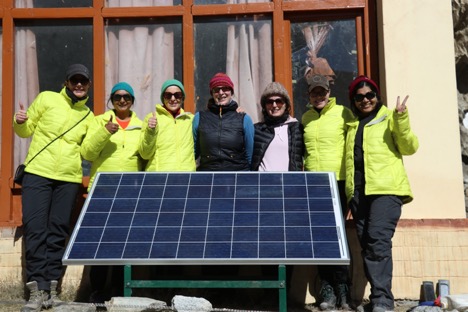
GHE used energy access as an entry point and tourism to optimize sustainability. GHE believes in the fundamentals of creating microenterprises, in line with one of ISV’s core pillars. This is practiced through training of local youth to ensure scalability and sustainability. To the organization, it is not enough to build the local capacities, it’s even more important to incubate them. One has to reduce the risk to entrepreneurs by creating friendly opportunities that will ensure profitable ventures. These young people are involved from the feasibility studies, to implementation, and then maintenance and monitoring once the installation is completed. This process ensures they learn solar engineering skills with hands-on experience which enables them to maintain the system.
Through service centers equipped with necessary materials and seed funds, GHE hands over the operations of the microgrids to the local empowered youth who are then able to operate and maintain the systems and ensure their continued service to the community.
GHE continues to promote climate neutrality by being involved in three things:
- Measuring the Climate Footprint
- Reducing Emissions as much as possible
- Offsetting what cannot be reduced – in the daily activities and business operations using UN- certified emissions reductions tools.
In recognition of implementing these goals, in late 2020 Global Himalayan Expedition (GHE) was recognized by the UNFCCC in partnership with the World Economic Forum with the “Momentum for Change Award 2020”.
The Maa Trust Trains Maasai Women in Beekeeping
The Maa Trust is a nonprofit organization working together with community-owned wildlife conservancies in the Maasai Mara, Kenya. Beekeeping is one of the first projects created and coordinated by the Trust back in 2006. Over the years, many lessons have been learned regarding how to improve the Maa honey social enterprise and not rely on external companies. Several Maa Trust staff have been trained on beekeeping so that they can oversee the project directly.
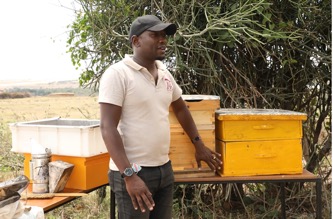
In 2019, attention was focused on rehabilitating old hives, installing new high-quality CAB hives, and reforming the Maa Honey women’s groups. It was decided to expand Maa Honey beyond working exclusively with the existing women’s groups. Maa Honey now also partners with individual local beekeepers, providing a harvesting service and a sales avenue for all.
Tourism in the Maasai Mara provides a large profitable market for honey sales. Maa Honey expanded in 2020 by offering women’s groups and families the opportunity to buy new CAB hives with a down payment of $50 with the other $50 covered by a loan subsidy repaid through harvest sales and then redistributed to other families or groups. To achieve this, the organization is looking for donors and partners who would like to donate $50 or more to support a loan subsidy.
The target is to install 400 CAB hives across the Maasai Mara ecosystem over the next three years. The organization also developing a Maa-language beekeeping curriculum to train local residents in basic and advanced beekeeping skills.
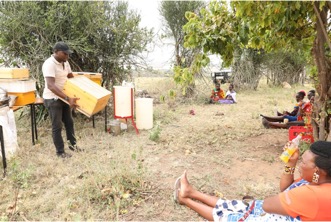
The Maa Trust has partnered with China House, an NGO aiming to integrate China’s Belt and Road Initiative (BRI) into global sustainable development. They conduct conservation and social projects to connect Chinese people with the sustainable development of disadvantaged communities. China House has provided social capital to Maa Honey women’s groups allowing them to purchase 20 beehives and for The Maa Trust to train them in beekeeping skills.
The Maa Honey team led by Marias Ripau, Education and Skills Manager met with groups of Maa Honey members and explained to them about the project and what was needed from them. The women were allowed to select nine women from the groups to be trained in modern-day beekeeping techniques, including how to set up beehives, apiary management, hive inspection, hive maintenance, honey harvesting, packaging for the market, and creating a value chain that guarantees high returns.

“There is one livelihood skill which when started can continuously give you income and food at least twice a year. Its potential as a business is yet to be realized, especially for groups wishing to startup small-scale businesses. It also benefits both the environment and food crops that you are growing. The demand for its product never ceases but keeps on increasing both locally and internationally. That livelihood skill is beekeeping.” Marias Ripau, Education and Skills Manager.

On September 18, 2020, the nine women selected attended the first training at The Maa Trust’s Headquarters. They enjoyed wearing bee suits and learning practical beekeeping skills.
For more information about the Maa Trust, contact Crystal +254 712 208713, or https://www.themaatrust.org/.
Article by Maa Trust.
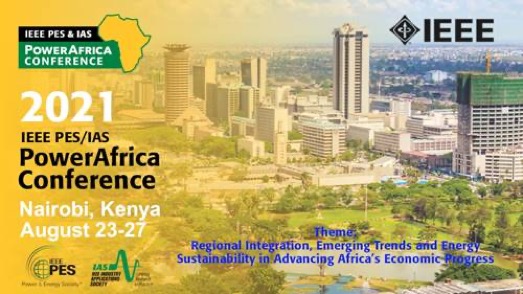
Call for Paper – 2021 IEEE PES/IAS PowerAfrica Conference
The IEEE Power and Energy Society (PES), Industrial Applications Society (IAS) and IEEE Kenya Section are pleased to announce Call for Papers for the 2021 IEEE PES/IAS PowerAfrica Conference to be held in Nairobi in the week of August 23rd to 27th, 2021.
The organizers are planning for an in-person event while continuously studying and evaluating the announcements, guidance, and news released by relevant governmental and health authorities. More information on the program will be availed in due course.
Important Dates
Call for Papers: Submission Due by March 5, 2021
Call for papers opens December 30, 2020
Paper submission deadline March 5, 2021
Author notification May 21, 2021
Early-Bird registration July 23, 2021
Conference Date August 23-27, 2021
Call for Papers: https://ieee-powerafrica.org/call-for-papers/
To download the call for papers PDF: https://ieee-powerafrica.org/wp-content/uploads/sites/172/2021/01/Call-For-Papers-PAC2021-1.pdf
Conference website: https://ieee-powerafrica.org

GUIDE FOR AUTHORS
Full Papers
Manuscripts should be of mature results or completed projects, at most five (5) pages maximum in IEEE two-column format and must be submitted in PDF format via the Conference paper submission website.
Paper submissions should include results that have not previously been published and should not be simultaneously submitted to another conference.
Short Papers (*new)
Papers should present analysis of initial or final research results or a case study. General project descriptions are not appropriate. Submissions by practitioners (governmental, for-profit and nonprofit), academics, private sector actors and policymakers describing intervention design and implementation, field experiences and best practices, case studies, project monitoring and evaluation results, and original research are of particular interest.
REVIEWS
All submissions received by the first deadline of 5th March 2021 will be assigned for reviews. Subsequent submissions will be assigned for reviews periodically in batches.
AUTHORS
Call for Papers PAC2021
Topics of Interest
Paper Submission Guidelines
Important Dates PAC2021
Download the PAC2021 Call for Papers Poster
Benefits of Publishing with IEEE
Authors will find that publishing with IEEE ensures professional development and exposure of their work because of the following reasons.
IEEE REPUTATION
IEEE has over 400,000 professional and student members who will shape technology for years to come. You will become part of IEEE’s stellar reputation and 125-year history of innovation.
OPTIMIZED VISIBILITY
Researchers rely on IEEE for trusted information. IEEE maintains active partnerships with abstracting and indexing providers such as Elsevier, Clarivate, ProQuest, IET, and NLM to maximize the discovery of author works.
OPPORTUNITIES TO PUBLISH
IEEE’s comprehensive selection of approximately 200 journals, transactions, magazines, and more than 1,900 conferences around the world allow authors to publish in the best forum for their work.
PEER REVIEW
The peer-review process is designed to ensure the high quality of every article submitted to and published by IEEE and is required before acceptance for publication or presentation.
The author benefits from peer review feedback, while the reader or conference attendee is assured strong and credible research.
STREAMLINED PUBLICATION
IEEE’s web-based workflow, including electronic submission has shortened the time from submission to IEEE publication and helps authors track a paper’s progress.
EDITORIAL DEVELOPMENT
Tools are available to help manage your workflow and make it easier to collaborate, reference, publish, and deliver your writing to readers and researchers.
TRUSTED CONTENT
Consistent quality and high demand make IEEE publications trusted sources for researchers in corporations, academia, and government.
IEEE journals and conference proceedings receive nearly three times the patent citations of competing publishers, which gives IEEE authors a distinct mark of credibility within their field of interest.
REFERENCING AND SEARCHING
As a member of CrossRef, IEEE Xplore articles include outbound reference links to other publisher content registered in the CrossRef system. IEEE Xplore is indexed by Google™, allowing Google search results to include links to IEEE Xplore.
Call for Papers: https://ieee-powerafrica.org/call-for-papers/
To download the call for papers PDF: https://ieee-powerafrica.org/wp-content/uploads/sites/172/2021/01/Call-For-Papers-PAC2021-1.pdf
Conference website: https://ieee-powerafrica.org












